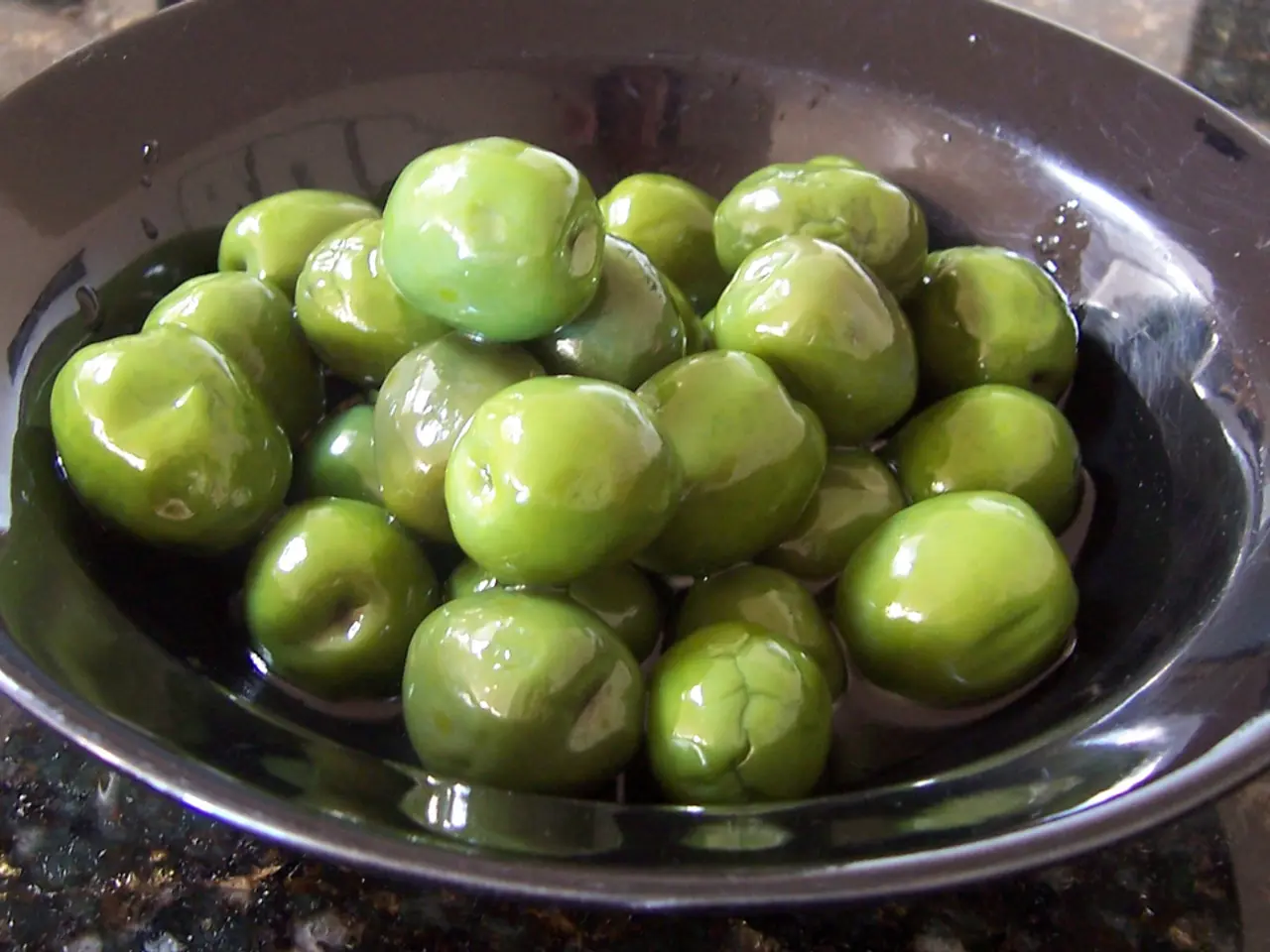Avoid Using Pure Olive Oil for Bathing, Even Organic Types Are Not Safe for Skin Soaking
Bathing in Pure Olive Oil: A Dermatological Dilemma
Olive oil, a staple in many kitchens, is also popular for its potential skin benefits. Rich in antioxidants, vitamins, and anti-inflammatory compounds, it can moisturize dry skin, promote skin cell regeneration, and neutralize free radicals [1][3]. However, when it comes to bathing, the story may not be as straightforward.
While olive oil is non-comedogenic and closer in chemical structure to the skin's natural oils, using it in large amounts such as bathing can pose certain dermatological risks, especially for sensitive or oily skin types.
Potential Risks of Bathing in Pure Olive Oil
- Pore Clogging and Folliculitis: Olive oil is a dense oil that is absorbed slowly. Leaving excess oil on the skin, especially without proper rinsing, may block pores or trap microorganisms, leading to irritation or acne-like breakouts, particularly in people with oily or acne-prone skin [2].
- Allergic or Sensitivity Reactions: People with sensitive skin or existing conditions like dermatitis should perform a patch test before applying olive oil extensively. Some may experience irritation or allergic reactions [2].
- Not Ideal for Oily or Acne-Prone Skin: Because olive oil can be heavy and occlusive, it might exacerbate oiliness or acne in some individuals [2].
While there is no direct evidence from the provided sources indicating serious dermatological issues strictly from bathing in olive oil, incomplete removal and prolonged heavy oil exposure could worsen existing skin conditions or create mild irritation in susceptible users.
Mitigating the Risks
Using olive oil in moderation and avoiding full immersion can help mitigate the potential risks associated with its use on the skin. Sparingly applying olive oil as a moisturizer after bathing, or mixing it into a bath, allows the skin to benefit without the downsides of full immersion.
It is always advisable to conduct a patch test and avoid heavy, prolonged oil exposure on oily or sensitive skin [1][2][3]. By taking these precautions, you can enjoy the moisturizing and antioxidant benefits of olive oil while minimizing the risks to your skin.
[1] PubMed Central. (n.d.). Olive oil and skin health. Retrieved from https://www.ncbi.nlm.nih.gov/pmc/articles/PMC3665025/ [2] NHS Inform. (2018). Olive oil and skin health. Retrieved from https://www.nhsinform.scot/healthy-living/food-and-diet/food-facts-and-nutrition/olive-oil-and-skin-health [3] American Academy of Dermatology. (n.d.). Olive oil: A dermatologist's perspective. Retrieved from https://www.aad.org/media/news-releases/olive-oil-a-dermatologists-perspective
- Engaging in a healthy-diet that includes olive oil can provide essential nutrients for overall health-and-wellness.
- Despite its beneficial skin care properties, using olive oil excessively, such as bathing, may clog pores, cause folliculitis, or irritate sensitive or oily skin, due to its slow absorption and heavy nature.




